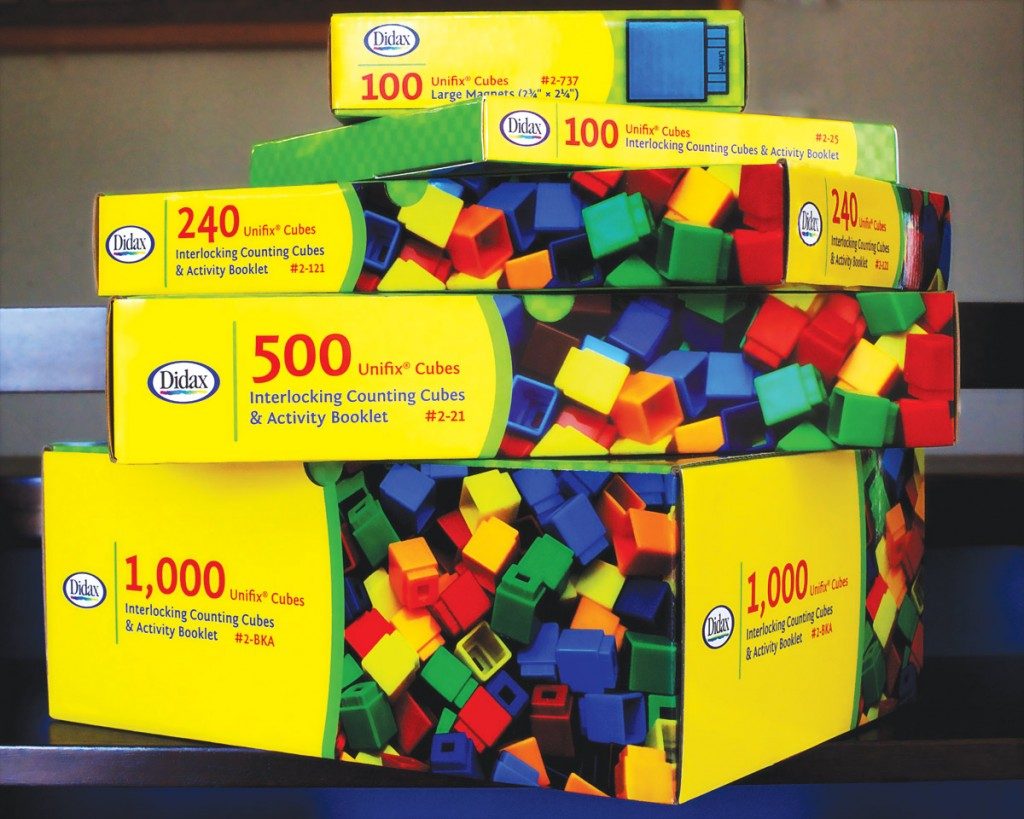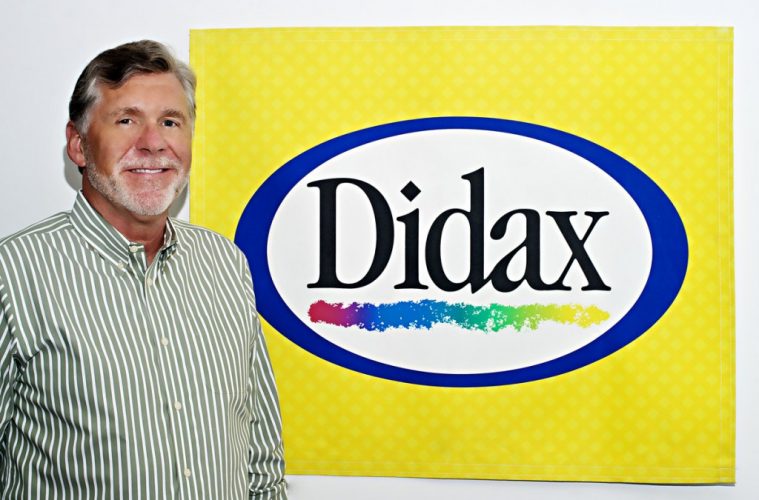From Andover, England, to the North Shore, Didax distributes tools for expanding horizons.
Like its nondescript building on Route 1A in Rowley, Didax is a company whose name is not immediately recognized. But its flagship product, the Unifix® Cube, is known the world over. The hands-on manipulative for math classrooms is so popular, “It’s the second-most well-known brand name in schools, just behind Crayola,” according to Didax president Brian Scarlett.
Didax’s parent company, Philograph Publications, is located in Andover, England. According to Scarlett, the reason that the British founders chose the North Shore for its headquarters rather than Boston is due to the familiar names of towns in the area with English roots, such as Ipswich, Peabody, and, of course, Andover.
When Scarlett joined as president in 1993, the company was half the size it is now. “When I started, there were about 10 employees, and today, there are 20. We’re not huge, but we work all over the country,” he says.
Unifix Cubes are still the centerpiece of the product line. “Today, we sell as many [units] as we’ve always sold in a year, which is about 40-50 million cubes,” Scarlett says. While annual sales of Unifix Cubes have remained the same, plenty has changed for the company over the years.

The original Unifix Cube
“When I came here, we started to expand the company into publishing, as well as manipulatives,” says Scarlett. The latter refers to objects (such as blocks) that a student is instructed to use in a way that teaches or reinforces a lesson. “Also, we are a book reseller, but our main business is to create and develop manipulatives and innovative software for teachers,” he says.
The company’s premier professional development for teachers is created by a well-known industry author. “Kathy Richardson is our most important author, and we work very closely with her. She delivers in-classroom training to teachers using materials she has written that we publish. Kathy is the foremost early-years math educator in the U.S. She is pretty much acknowledged as the authority of early childhood math education,” Scarlett says, proudly.
While Didax’s offerings can help educators worldwide, local teachers benefit from the company in many ways. “We have piloted materials with Pine Grove School and worked with their teachers in focus groups,” Scarlett explains. “Also, we have a large warehouse and extra inventory, so we provide free materials for teachers. Three times a year, we invite teachers from Newbury, Amesbury, Ipswich, and Rowley to come in and take whatever they want.”
That generosity goes hand in hand with the company’s general philosophy. “What is important to us is [producing] materials [that are] useful for teachers [and] that will have an impact on children’s lives…and [keeping] the people involved in the enterprise in a secure and stimulating environment. So we’re fine if we don’t grow, as long as we make enough money to carry on the enterprise and do the good things that we do,” says Scarlett. didax.com

